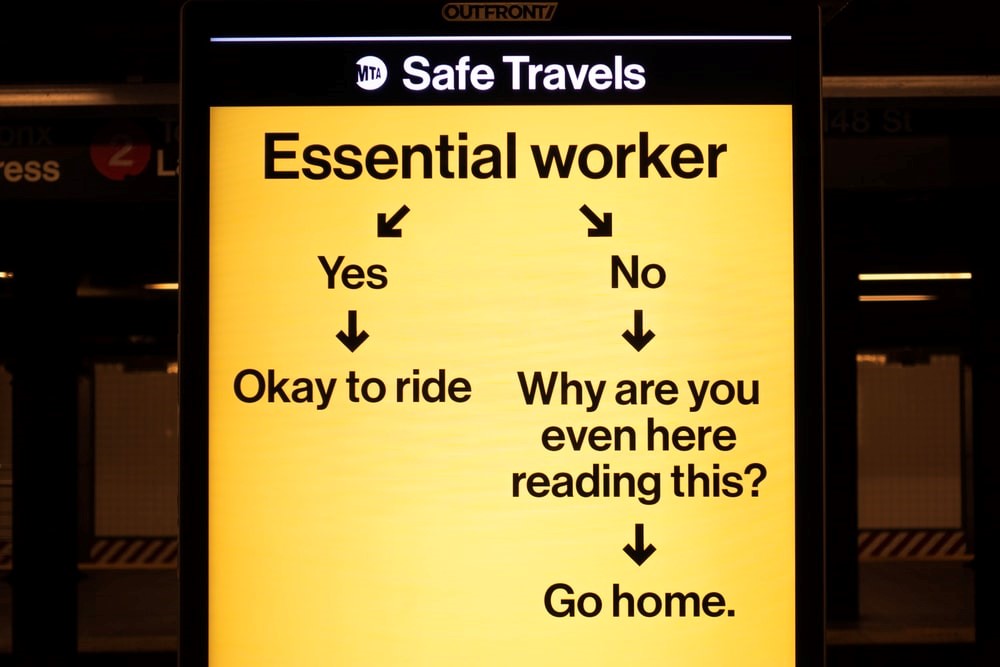
The Coronavirus pandemic has affected all of us in some way and, for the almost 33 million of us who work, we’ve seen our day-to-day lives and the way we earn an income adapt to the new way of life.
Although many are still on the front line, the majority of us are now working from home, have been furloughed, or sadly been let go. Environments have changed, responsibilities have been tweaked, but our employment rights are as strong as ever.
Here we answer a number of your FAQs regarding Coronavirus and employment law.
What to Do If Your Role Suddenly, and Dramatically, Changes?
For all in employment, your role will likely be affected in some way. Whether this is new responsibilities to check in with your team members who are working from home, stepping in to assist with actions that another employee may have done before being furloughed, or ensuring PPE and other safety measures are in place.
In many cases, this is a simple verbal agreement between employer and employee for the short-term, but in others this can be a permanent change which needs to be agreed and recorded in writing. Your employee rights are no different during COVID-19 to times when we are not in a pandemic, so, if you are not happy with the changes, it is important to communicate this.

For further guidance on this specifically, please take a look at our article: How to Protect Your Legal Position at Work
What Does it Mean to be Furloughed?
Furloughing is simply a mechanism for employers to put their staff on temporary leave during the pandemic to protect their assets. If you have been furloughed, you are still employed and will receive your pay but 80% of your usual wage or £2,500 a month (whichever is lower) would be reimbursed to your employer under the government scheme.
Your employer may seek to make some changes to your pay as part of the furlough arrangements, for example, to reduce your contractual entitlement to pay during furlough to match the government’s reimbursement. You should be asked whether you consent to this change, otherwise your employer might have acted in breach of contract.
If you disagree with your employer’s decision to select you for furlough, or how much you they propose to pay you, then you should state this immediately.
The terms of your furlough should be confirmed in writing to you. This should include the date the furlough starts, how much you will be paid, when the furlough will be reviewed and how to keep in contact throughout the period.
How Should an Employer Adapt for Key Workers?
It is important to remember that this situation is just as strange and challenging for your employer as it is for you, and most are doing everything they can to make the process as pain-free as possible.
If you are now working from home, you should expect your employer to pay you as usual, keep in regular contact, and to check in on your health and wellbeing.

For those who are considered ‘key workers’ and are expected to still leave the house to go to work, employers must adapt considerably, introducing the necessary safety measures to keep employees and the public healthy.
Extra care must be taken for those within the workforce who are considered ‘vulnerable’ due to age or pre-existing health conditions. The UK government is sending letters out to those they believe to be high risk. If you receive one of these, you should notify your employer immediately and stay at home for at least 12 weeks, whether you’re a key worker or not.

What If You’re Worried About Returning to Work After Furlough?
Whether you’re vulnerable or not, if you do not want to go to work and fear catching the virus, speak to your manager immediately. Employers should listen to your concerns and adapt accordingly. ACAS suggests implementing extra car parking so people can avoid using public transport, and many businesses have fitted plastic screens to safeguard employees.
Simply refusing to go to work, without a valid reason, can lead to disciplinary action and is not advised. However, particularly where you genuinely believe your health and safety is at risk if your return to your duties, you may be able to negotiate with your employer and take your holiday allowance or unpaid leave to stay home.
What Happens If Someone Else in Your Household Gets COVID-19?
As of 13th March 2020, Statutory Sick Pay (SSP) legislation has been adapted so that employees receive pay from their first day of self-isolation if you have Coronavirus, have symptoms and suspect COVID-19, or if someone in your household has symptoms. See our COVID-19 legislation update for employees for details.
Your usual sickness reporting process should be followed, and you can self-certify for the first 7 days off work. If you need to isolate for longer than this, you can get an online self-isolation note from the NHS website or mobile app.
If you need time off to care for a dependant that does not live with you (such as an elderly relative), there is no statutory right to pay and you should check your employers handbook for any relevant policies. If you need emergency time off to arrange childcare now schools are shut, you may be able to use your holiday allowance or rely on your statutory right to unpaid time off for dependants.

Do You Feel You’ve Been Unfairly Dismissed?
Sadly, the financial impact of the Coronavirus impact has meant some businesses have had to close temporarily or ask staff to reduce their contracted hours.
If you have been laid off and are not entitled to your usual pay because of this, you should receive a statutory guarantee payment of up to £29 a day from your employer. This can be paid up to 5 days within any 3-month period, and Jobseeker’s Allowance can be claimed in conjunction.
If you have 2 complete years’ continuous service and have been dismissed, but you believe it was ‘unfair’, then you may have a case for unfair dismissal compensation.
If the reason you were dismissed was connected to your health, the fact that you’re categorised as vulnerable (due to pregnancy, your age or underlying medical conditions for example) or because you tried to raise health and safety concerns, then you may also have employment tribunal claims which don’t require 2 years’ complete service.
How Can Howells Solicitors Help?
If you would like legal guidance or to make a claim about unfair treatment, our employment law solicitors will be happy to help.
In the meantime, please get in touch with us by emailing over your details, and make sure to read around the topic in our employment law section of this blog.
From everyone here at Howells, please stay home and stay safe.

